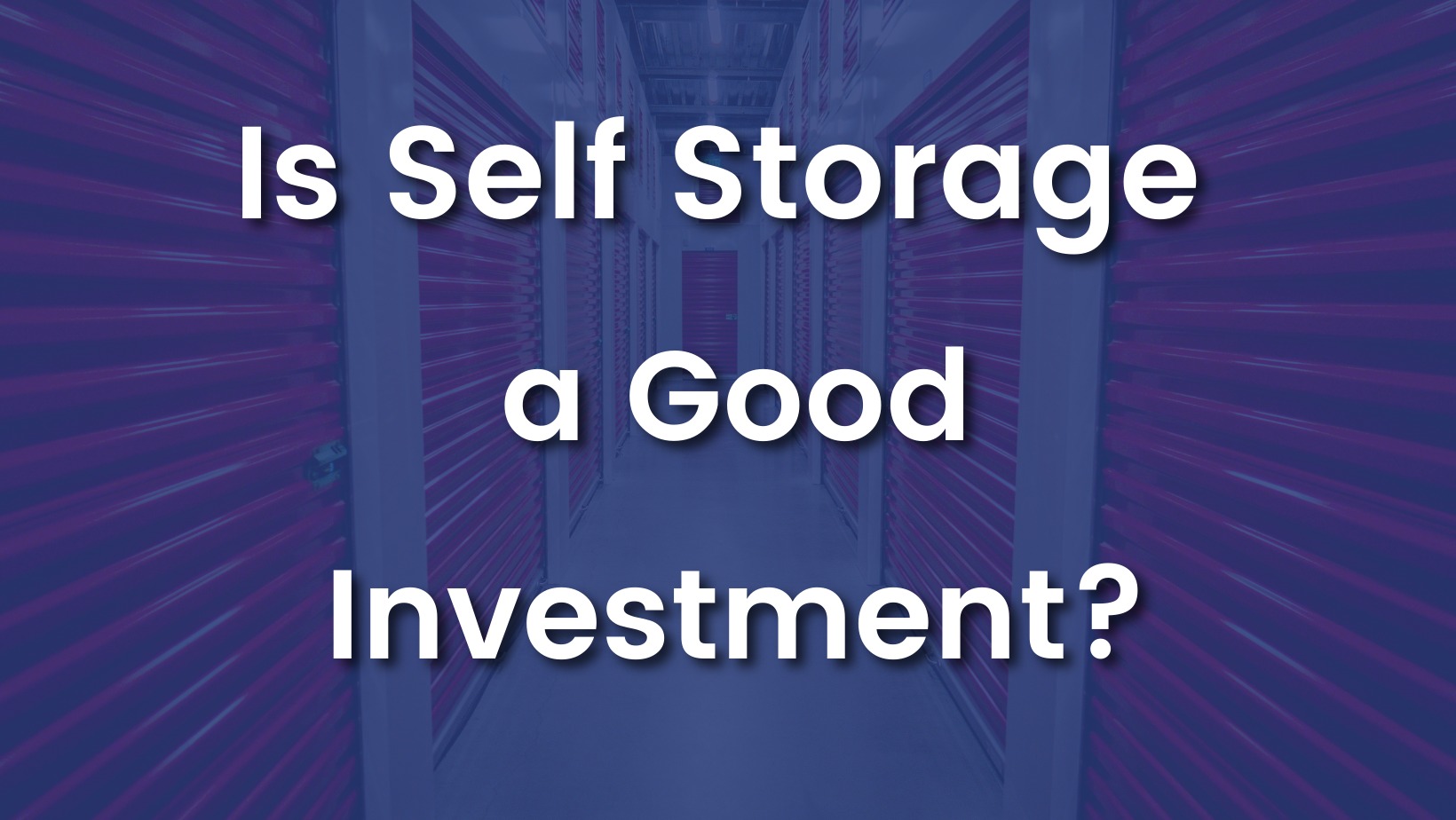Being Market Conscious In Real Estate with Kathy Fettke
Being market conscious in a very unpredictable market is what every realtor should be mindful about. Kathy Fettke, the Co-CEO of the Real Wealth Network, shares her insights on how to be careful when investing in real estate. Stagnation is across the country with the government slowing the economy down after stimulating it a few years ago. Such scenario is what Kathy highlights for investors to be well versed at and she shares some tips on what a real estate investor should do to continue earning even on a stagnated market. Passionate about teaching others how to create real wealth, she also shares her best and worst real estate investments, noting how consciousness and being cautious can safeguard any investor from losing so much especially in a volatile market.
---
Being Market Conscious In The Unpredictable World Of Real Estate with Kathy Fettke
Our guest is Kathy Fettke. Kathy is the Co-CEO of the Real Wealth Network and the bestselling author of Retire Rich with Rentals. She is an active real estate investor, licensed real estate agent and a former mortgage broker specializing in helping people build multimillion-dollar real estate portfolios that generate passive monthly cashflow for life. With a passion for researching real estate market cycles, she is a frequent guest on CNN, CNBC, Fox, Bloomberg, NPR, CBS MarketWatch and the Wall Street Journal. She was named among the Top 100 Most Intriguing Entrepreneurs by Goldman Sachs two years in a row. She hosts two podcasts, The RealWealth Show and Real Estate News for Investors, both top ten podcasts on iTunes with listeners in 27 different countries. Her company, Real Wealth Network, offers free resources and cutting-edge education for beginning and experienced real estate investors. She is passionate about teaching others how to create real wealth, which she defines as having both the time and the money to live life on your terms. It’s something I know that you’ll be interested in hearing about. Kathy, thank you for joining our tribe and coming and talking with us.
Thanks for having me. I appreciate it.
I’ve seen you speak a couple of times at a couple of different events. I’ve always enjoyed it. I enjoy listening to your podcasts, especially Real Estate News for Investors. What’s on your mind these days? Things have changed. The markets are fluctuating. The real estate is still strong though.
The real estate markets are fluctuating and times are changing. People need to be aware of how they’re changing and how it might affect them in their particular market. In some markets, it has come to a screeching halt, while other markets are still booming. You’ve got to be prepared.
Markets that have come to a screeching halt, when I hear that, I think of California, expensive, coastal, major market real estate. Is that what’s on your mind as having stagnated or are we talking about the middle of the country thing?

It’s across the country. What we’ve had for the past years is a lot of stimuli, a lot of government stimuli to revive the housing market after it collapsed in 2008. There was over $4 trillion printed and created out of thin air to revive the economy. That’s never happened before to have such a massive money supply created. Nobody knew how that would turn out, but it worked. The real estate market reinflated and in some areas, reinflated in a bubble way. In other markets, not so much, just are solid. What the Fed is doing is reversing that. What happened over the past years, the stimulus is being reversed. There’s a tightening happening on the Federal Reserve level. That’s what the rising interest rates are. That’s what the situation was with the Fed buying bonds. They were buying bonds to keep interest rates low. They are unloading those. That’s where we see long-term mortgage rates increase. The bottom line is usually what the Federal Reserve wants, the Federal Reserve gets. They wanted to stimulate the economy a few years ago and it worked. Now they want to slow it down, prevent bubbles and prevent inflation. That’s what they’re getting.
I’m a fan of Peter Schiff as well. He’s definitely one to talk about the coming inflation spike. It’s already here and we’re missing it. Where do you stand on that? The Fed says, “There’s some inflation but it’s not a problem.” What do you see there as far as inflation goes?
What we know for sure is there has been massive inflation in housing and the stock market. With goods and services, it depends. You’ve got certain technological devices that get cheaper every year. If you try to buy the computer you have now, it would be cheaper because the new computers are much better than probably the one you have, even if the one you bought was six months ago. Depending on what you’re talking about, there’s been inflation or not. Definitely, there’s been massive inflation in the housing market. That was intended. That was the whole point of buying bonds to keep mortgage rates low. We’ve come back, for the most part. In most markets, prices are back to where they were. The Fed didn’t want to see another bubble and started raising rates.
Add to it the tax changes that many people said, “That benefited only the wealthy.” What it did was create a bit of a slowdown in the higher price markets because of the SALT deductions, the limits on mortgage deductions and no more not as good incentives on vacation homes. You see a slowdown in the high-end in California, LA and San Francisco. I hear it across the country though. That’s what’s interesting. I was invited to a conference in Dallas. I didn’t know what it was for, but I was invited to come and speak so I went. They gave me a booth. I ended up meeting real estate agents from across the country. It was a very well attended event. There were thousands of agents from around the country. I asked every single one that came by, “What’s going on in your market?” I didn’t hear anyone saying that things were picking up. Every single person I spoke to said things had slowed down in the last few months. Be aware. Your market may still be hopping. Be aware that things could change on a dime. You don’t want to be stuck having spent too much on rehab and realizing there wasn’t a huge margin in there and you’re going to have to reduce prices or it’s going to take longer to sell. You have to understand that things are changing. You can’t use the same strategies that you used in 2017 or a few years ago.
I’m an apartment investor. The market’s been pretty tight for a couple of years. Prices are still pretty high. Things might have slowed down a little bit, but attractive valuations are getting harder to find. What is a real estate investor to do to continue to make money? We can’t sit in our offices and blame the market all the time. We have to get out there and make some money.
What the Federal Reserve wants, the Federal Reserve gets. Click To TweetI interviewed a big apartment guy on The RealWealth Show. They’re net sellers. They had an interesting strategy that I hadn’t heard anyone say yet. They are putting all their C-Class properties on the market, selling them at top dollar, any value-add stuff. Hedge funds and investors worldwide are clamoring for these value-add apartments, not realizing that a four-cap value add maybe not the best deal in town but they’re buying them. These guys are reinvesting in B-Class. They’re repositioning and getting their upgrading. I thought that was an interesting way to deal with nowadays dynamics. I’ve heard a lot of people saying in multi-family, “If things soften, the best place to be is in the B-Class because A-Class apartment renters maybe can’t afford the A-Class anymore. The C-Class maybe are able to afford the B-Class because rents have gone down.” That’s their strategy. At Real Wealth Network, some of the things that we’re doing still is finding very affordable housing and markets that are poised for growth and renovating those, staying very much within the median home price, the median rent of the area. For a while, there’ll be a very strong demand for B-Class properties in single-family, one-to-four unit and multi-family.
A lot has been said about mini markets that are poised for growth. Specifically, Texas has been a big name in the last few years as far as how great everything is there. It’s all sunshine. What do you see as growth markets over the next several years?
Finding the best market in the US has been my thing since probably 2005 because I’m born and raised in California. If you were trying to find a good deal or any cashflow in California in 2005, you’d be hard-pressed. Even if you went to Stockton, and people did, you would not find cashflow. I had the opportunity to interview some experienced investors like Robert Kiyosaki and Dennis Kaminski back then on The RealWealth Show. It was one of the first podcasts. They were the ones to tell me, “You’ve got to sell from the high-priced markets. You’re at the peak. Exchange into emerging markets.” They chose Texas because of the massive job and population growth there. We were cashing in. It made so much sense to me, “Sell at the peak.”
In Stockton, for example, I had a woman come to me who had three rental properties in Stockton that were old. They were dilapidated. She was being nickeled and dimed every month by the property management. Everything would be breaking. She never made any cashflow. She was able to sell three Stockton properties for $420,000 each in 2006 at the peak. She was able to get nine or ten brand new homes outside of Dallas in a little town called Rockwall that was in the path of progress. Those rented for the same amount. She quadrupled her cashflow and got into brand new A-Class properties. She sold the D-Class at the peak. Those properties stayed rented. They tripled in value over that time period. She never even felt a recession. The person who bought her Stockton properties for $420,000 each, those ended up being worth about $75,000 after several months after the market crashed.
I understood a few years ago that this is an amazing time that you can sell at the peak and exchange for another property that’s at the beginning of the boom. What is that now? Is it Dallas? At least in the apartment world, there’s a lot of product coming online in Dallas. That’s going to affect rents, put downward pressure on rents because there’ll be so much supply. The same is true for Seattle. There is a concern that with the new HQ2, how is that going to affect Seattle where it’s already pushed? The affordability is already maxed. If jobs start to leave, you’re maybe going to see rents go down there. You can’t just follow jobs. You’ve got to know, “What supplies are coming online? Are these jobs here to stay?” We’ve got quite a few markets identified that fit our metrics at this point.

Amazon has not finally announced where they’re going to put HQ2. They’re in the final steps. They’re going to tell us. They’re just hanging onto it. It looks like it might possibly be a couple of hours away from where I live. It’s going to be in Northern Virginia potentially. You can’t just follow jobs. How much do you think about the, “Business friendliness,” of any given state for how good of an area it might be to invest in in the future?
That’s one of the first things we look at. We’re inundated here in California with laws that are not in our favor. We were building and entitling land and regulations got so intense for the builder. To build a single-family home, it was about $120,000 to $140,000 in fees, let alone the years it takes to get the job done from an entitlement perspective. Whereas three hours away, we could go to Reno, Nevada and build there where there’s all this new job growth. The fees are maybe in the $10,000 to $20,000 range. You can get something built pretty quickly with massive demand and affordability in check. There’s no state income tax. There are favorable business-friendly laws, landlord friendly. Go across the border to California and if someone doesn’t pay their rent, you’re going to be hard-pressed to get them out of your property. It’s everything. Californians were voting on a Prop 10, which could put rent controls on single-family units and new developments. I’m like, “Come on people.” These laws exacerbate the problem. If you punish the landlord, the landlord is going to leave. They’re not going to have any rentals.
The housing affordability problems are very complicated. They’re top of the show. The Fed has done everything they can to push prices back up on housing. Folks wonder why costs are so high. It can cost $110,000, $120,000 just to get the permits done on a new property in California, whereas you can buy a property in many states for that amount of money. It might not be A-Class property, but it’s going to be a house that you can live in without having a problem. It baffles me that people can’t seem to do the math on that. We’re not here to solve that problem. As far as Fed policy, kicking up interest rates, Peter Schiff likes to say that they’re doing that so they have somewhere to cut from when the next recession comes. What’s your opinion about that? Do you think he’s right? Do you think it’s too little too late?
I listen to Peter Schiff a lot too. I try to balance it with a little bit more optimism. I get where he’s coming from. We have a manipulated market place. It will implode. It’s just, “When?” Peter Schiff thinks it could be any day. I’m not so sure about that because there’s more ammunition they can use that is only going to make matters worse, but it’s going to at least not affect the politicians in office. It will affect them down the road. You and Peter are right. When this recession hits, at least interest rates are a little bit higher such that they can be lowered to try to stimulate the economy again. The other reason they’re raising rates is that the economy is booming. That’s what you’re supposed to do. You raise them to slow things down a little bit. They’re doing it because it’s called for. When inflation hits, it’s 2% rate. That’s the time they raise rates. They’d been raising them very cautiously, tiny percentages to keep that momentum going. They’re not trying to pop a bubble here. They’re trying to prevent massive inflation. It is working. The question is, “Will they be able to slow down the economy and not bring it to a screeching halt?” In the past, it hasn’t worked usually. If they raise rates, it usually pops bubbles and people lose money.
That’s why you should be cautious. It’s like you’re teetering on the top of this bubble. It could be a soft landing. There have not been in the past, but there could be this time because of the slow raising. We’re not going to buy full percentage points here. It’s the slow raising of rates. We’re doing massive deals. We tied up some property outside of Reno. There’s a lot of job growth in Reno because it’s in those income tax state and it’s much more affordable than the San Francisco Bay Area. It’s only three hours away. It’s across the border. It’s massive growth. Amazon, Apple and Tesla are moving there for so many reasons. It’s 50,000 jobs coming. They need 3,500 homes per year. They’re not even close to building that. It’s a very attractive place to build. The laws are in our favor. We’ve tied up land in the Reno area that we’re excited about. We’re going to make sure that we don’t take on any debt. Whenever you’re building anything, it was the builders that got hit hard because there’s no income during the time that you’re building or that you’re holding land. You don’t want to get into any high leveraged loans and a deal that might take longer to entitle or to develop. We’re being very careful taking on low leverage or no leverage.
Things are changing. You can’t use the same strategies that you used in 2017. Click To TweetThere were a lot of builders that were maybe properly capitalized before the recession hit. Once it did, they ended up being completely undercapitalized because they couldn’t move their property and continue to make the payments on any of the loans they had, construction loans or anything like that.
There is a project I can talk about. It’s closed syndication. We bought about 250 lots in the Reno area that we entitled and are building homes. It’s because of the reasons that I spoke of, we don’t know when the market will turn in the Reno area, so far it’s hot. It can turn on a dime. The builder that we work with has been doing this for many years. He’s seen what can happen. He’s not taking any risks at this stage in life. He only does deals to make money, not to learn. We bought the land and entitled it. We started the horizontal construction and sold half the lots. We used that money to fund the construction of the remaining lots. We never went into bank debt. If, for some reason, we had a massive economic collapse like Peter Schiff predicts, we would have been okay. We could have held that land.
At the same time, if we had a massive boom like our current administration predicts, we’d also be in great shape. No matter which way the economy went, we’d be all right. That’s how you want to be set up. The lady that sold her Stockton property bought nine or ten properties in a growing area in the Dallas area that all had high cashflow. If she was vacant on one or two, she’d be okay. She had all these other ones to support. The numbers made sense. She was low leveraged. She never even experienced a recession. If it was a massive boom, she would’ve done fine there too. You need to understand that it could go either way. You can be prepared. You can have your portfolio prepared for that.
What is the best investment you’ve ever made?
I think we’re in the midst of a few. The best investments I’m about to make are in Opportunity Zones, I’m excited about that. The ones that have already completed, probably the most exciting because it was so easy and so profitable. It was the easiest one I’ve ever done and the highest yielding. That was a great combo. I worked with a developer where he knew that there were plans for a brand-new downtown area in the Dublin California area. That’s maybe 30 minutes out of San Francisco, maybe 40 minutes with a BART train that takes you right to the city, right to downtown. It’s always been not nice. It’s never been upgraded or revitalized. He had found out that the city was planning on completely revitalizing the whole area by the train station that would take you straight into the city.

If you can find out what the city’s plans are, the areas of revitalization and get in front of that path of progress before the locals know about it, you can make a lot of money. That’s what he did. He found an old dilapidated office building right in that area that was slated for this new downtown. He negotiated a lease purchase with the owner and said, “We’ll buy this for $10 million, but we’re just going to give you $1.2 million. We’ll give you the remainder in two years.” They agreed because it was a good price. The seller did not know about all these new city plans. He would never have done it. In those two years, we re-entitled it to residential because we knew that’s what the city wanted. We tore down the commercial building. We got all the tenants out. We relocated them and finished out these residential lots. We sold the lots for $20 million to a national builder. We were able to close on the deal for $10 million and flip it for $20 million. We only had to put $1.2 million under the deal. It was pretty great. Our investors were pretty stoked. They made a fat IRR.
What is the worst investment you’ve ever made?
We bought an apartment in Indiana. There were a lot of good things going on in the area. Unfortunately, it was a bit of an older building. In the middle of the night, there was a gas leak. The firefighters came and removed all the tenants because it was a gas leak. We did not know that was going to happen. All the tenants had to move and we had to fix all this. In the process of fixing the gas leak, the city was paranoid. They didn’t want to move the tenants back in until everything had been checked. They did a little more digging around. We had to fix the plumbing. They found mold. We had to fix that. It went on and on. It turned out to be yearlong of all these new things that needed to be fixed. We were not budgeted for that. It ends up costing millions more than we had budgeted. I went to the bank. This was a nightmare. I wasn’t experienced enough in multifamily to know how to deal with this. There was another manager who had brought this to us, an operator for it. I fired him. I ended up having to take over the whole project myself. This was probably one of my scariest moments ever in life was to go to the bank and say, “You can have this property back or you can renegotiate the loan because we can’t make it work.” They came back and lowered the loan by $1 million. That was amazing, but it was very difficult. There were losses. My investors knew that we did everything we could. We’re not doing those deals anymore. It was tough.
What timeframe was that?
It was probably 2011.
What is the most important lesson you’ve learned about investing?
It's very cautious. It’s so easy to look at a proforma and only calculate the numbers as if everything were to go perfectly. You’ve got to run it through a stress test. There are too many people saying, “We’re going to fix this and do this. We’re going to raise rents, increase value, refine and pay our investors back.” They’re certain and guaranteeing that they’re going to be able to raise rents. Unfortunately, that’s not historically true, especially at this time in the market cycle. You have to be able to make the numbers work in a situation where the rents were stabilized or even possibly declined. We think there might be some renting clients in the Dallas and Seattle area potentially if there’s oversupply coming. Some people don’t agree because there’s also so much job growth and population growth, but it’s something to keep an eye on. Run your proformas as if a recession were coming and as if a boom were coming. If it works out either way, you’re in good shape.
How can folks get in touch with you?
You can go to RealWealthNetwork.com. It is free to join. You get access to all this market data we have on the different cities that we think have lots of potentials, where there’s still an upside but still cashflow. You can listen to my podcasts, it’s The RealWealth Show or Real Estate News on iTunes or Stitcher.
Thank you for joining us. If you’re enjoying the show, please subscribe on iTunes or wherever you get your podcast. If you think you know someone who would benefit from all the information that I and the guests like Kathy bring to the table, please invite them. Share a link with them. Tell them about the show. Get them on board. Help them start generating some passive income and growing their wealth passively. We’ll catch you on the next one.
Important Links:
- Real Wealth Network
- Retire Rich with Rentals
- The RealWealth Show
- Real Estate News for Investors
- iTunes - Real Estate News for Investors
- Stitcher - The RealWealth Show
- iTunes – Passive Wealth Strategies for Busy Professionals
- https://www.RealWealthNetwork.com/
About Kathy Fettke
Kathy Fettke is Co-CEO of Real Wealth Network and best selling author of Retire Rich with Rentals. She is an active real estate investor, licensed real estate agent, and former mortgage broker, specializing in helping people build multi-million dollar real estate portfolios that generate passive monthly cash flow for life.






